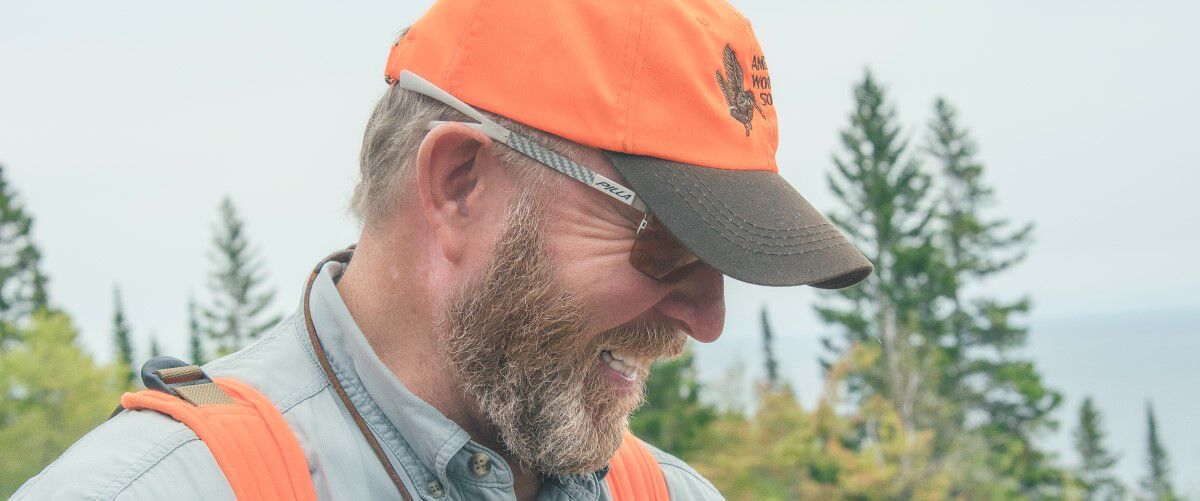A Beginner’s Guide To Hunting Public Land
By Krissie Mason

For anyone who’s grown up outside the hunting culture, it can seem hard to find your way in. There’s tactics and gear, but simply finding a place to go and knowing what to do when you step out of the car can feel like a deal-breaker. Thankfully, small game and public lands offer an easier path to entry.
For 25 years, Mike Bartz served as a conservation officer and Wisconsin Department of Natural Resources Northern Region warden. He not only lives to hunt on his own time, his decades of professional experience in the field gives him unique insights. Recently, we connected, and he agreed to share some pointers for anyone new to hunting small game on public ground.
Q: Everybody talks about hunting on public lands, but what does that really mean?
Bartz: Simply put, it means hunting on lands held in trust by state and federal governments. Our public lands are an incredible resource and treasure for everybody because not everyone can afford to own their own 40-acre parcel. In Wisconsin, the trend I saw over the course of my career as it relates to rifle season for deer was more and more pressure on public lands. From a hunting point of view, there has been a decrease in public land use because there has a downturn in hunter numbers; both small game and big game.
Sub-Sonic HP 22 LR
Clocking in at sub-sonic velocities, this load creates less noise, yet its bullet expands reliably for quick kills on a variety of small game.
Buy Now
While I know some people out West pay to hunt on private land, I wouldn’t. There are so many spectacular habitats within our state park services, national park services, national wildlife refuges, national forests, Bureau of Land Management managed public lands—literally millions of acres.
Q: How does one start hunting on public land?
Bartz: With a little research you’ll find there is a ton of incredible habitat. While each state is a little different, overall, the U.S. has unparalleled opportunities. There are a lot of databases out there for public land; designated as wildlife management areas and designated public hunting grounds. Find county plat books that identify state and federal lands (analog or digital), search DNR databases and your state’s fish and game agency website.
Q: So, let’s say I’m a newbie who’s driving out to go rabbit hunting with my .22 rifle and maybe a dog. Do I just pull over on the side of the road and walk in? Do I have to tell anyone where I am going?
Bartz: Yes, you can park and walk in. As long as you are following all the other rules—state license requirements, hunting only the species allowed, bag limits, etc.—then you have a privilege to hunt there. It’s not a right, it is a privilege. Small game hunting on public lands is a great way to start a new hunting tradition.
An enjoyable hunt begins with being prepared. Be sure your firearm and ammunition are ready to go. Do your research and have information, maps and licensing taken care of in advance. Have a plan for unexpected weather conditions or emergencies. Let a friend or family member know where you are headed in case you are running late with dinner!
Q: What if I run into a forager or a hiker?
Bartz: If I am squirrel or rabbit hunting and encounter someone, I see that as an opportunity to introduce someone to small game hunting. Tell them this is my dog, this is what he does, this is how he works. This is a small caliber rifle; this is how it works. It uses these small rounds. People are usually receptive to that. I’ve had that opportunity several times over the years.
FMJ 17 HMR
Put more meat in your stew and less into scrap with our Small Game FMJ. It's accurate, consistent and punches clean holes to minimize meat loss.
Buy Now
When non-hunters are using public lands, conflicts are minimal. I think there is a misconception on the part of the non-hunting public that hunters make the forest a dangerous place. If I was going to go out and walk the dog as a non-hunter, I would not feel unsafe at all. When it comes to all hunting, but especially small game, the rate of accidental shootings or accidents of any kind is negligible.
Q: Any parting words?
Bartz: Remember that every hunter goes through an evolution. Typically, there is a learning curve up front. The goal is to put a bunny or bird in the bag, tag a deer, or whatever. In the pursuit of doing that you learn the biology, ecology, habitat, and you start seeing things you never saw before in the landscape. It adds to the total experience and to the knowledge base. That compartment grows larger and larger. As it grows, your responsibility as a public landowner is to maintain the ethical tradition of respecting nature and continue to be stewards of the habitat and the wildlife.